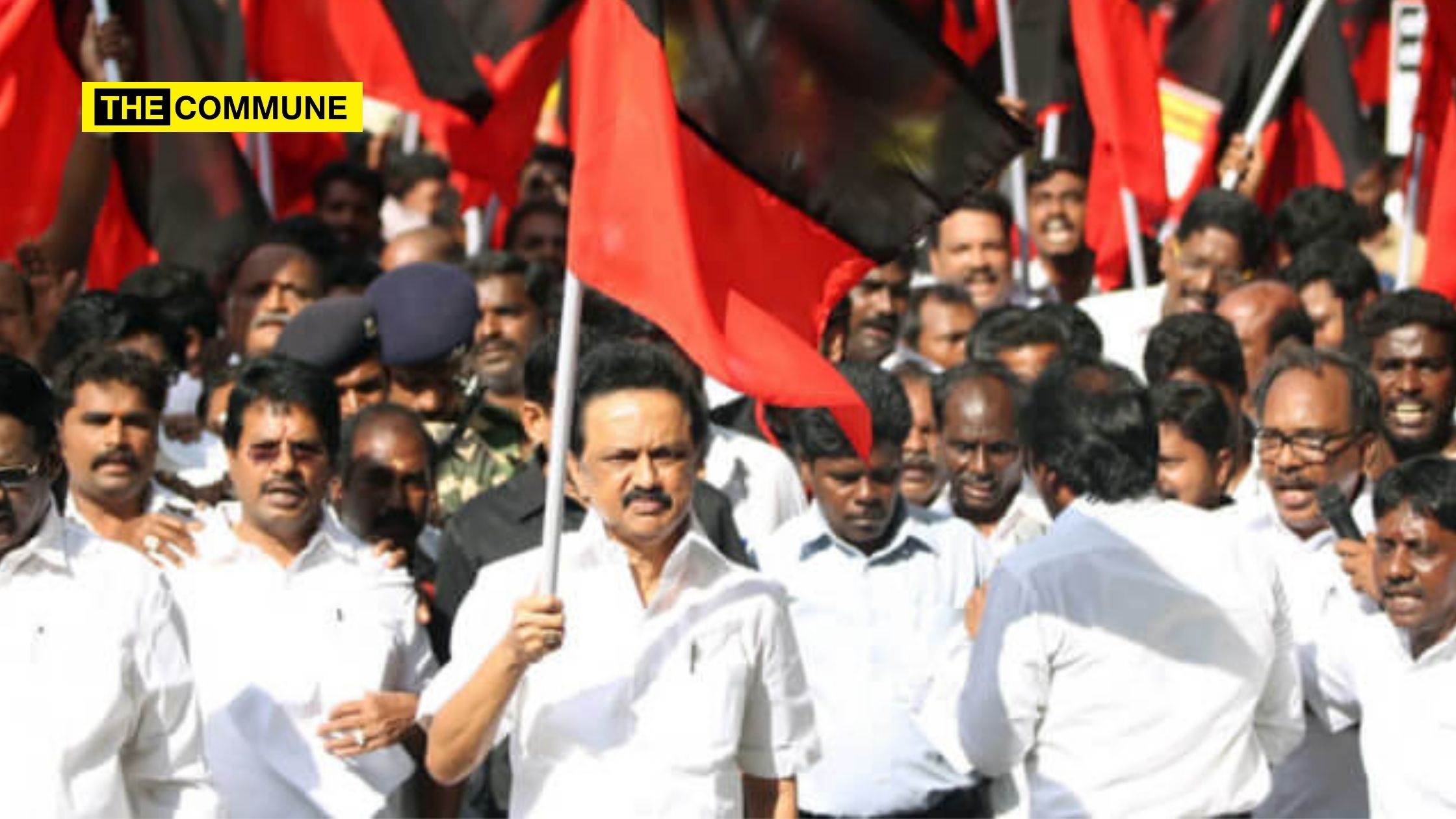
Kitex Garments, the world’s second largest manufacturer of kids apparel has decided to withdraw from ₹3,500 crore investment plan Kerala due to constant inspections tantamount to harassment by the Pinarayi Vijayan Communist government and has decided to shift to other states. Six states including Tamil Nadu and Telangana invited Kitex to invest in their state. However, Kitex decided to invest in Telangana instead of Tamil Nadu, despite offering irresistible offer. The reasons behind Kitex’s decision to invest in Telangana instead of Tamil Nadu requires serious discussion about the kind of investment climate prevailing over Tamil Nadu.
The Tamil Nadu government had given many concessions in order to get Kitex Garments to invest in the state. According to Sabu M. Jacob, Chairman of the world’s second largest kidswear manufacturing company, Tamil Nadu has offered the company a 40% subsidy on the total investment, half-priced land, full stamp duty waiver, 5% interest subvention for the first six years, 25% subsidy on environmental protection facility, 50% subsidy on intellectual property rights protection and 20 per cent of the employee cost for up to 10 years to be borne by the state.
The firm also offered a five-year discount on electricity, a 100 percent exemption from state GST on capital assets, ₹4,000 in employee training and ₹6,000 in training for workers from SC/ST groups, and a 50% subsidy on quality assurance certification fees. The Tamil Nadu government further stated that any additional demands from the Kitex Group would also be considered.
Now, why will a firm, given this much concession, will drop Tamil Nadu as their choice is the fundamental question that arises to any person in Tamil Nadu. There might be a slew of reasons converging to create an unfavourable investment climate in Tamil Nadu and the DMK may have been involved in each of them in the past in order to gain power in the state.
After Jayalalitha’s demise, there was political instability, with the main opposition party, the DMK, anticipating that the government might fall at any time. Unfortunately for MK Stalin, the then opposition leader, nothing like that transpired. Edappadi Palaniswami emerged as a new leader in ADMK and led the government for the entire five-year tenure.
DMK President MK Stalin gave tacit support to anti-social elements protesting the AIADMK government, while he was the opposition leader which was promoted by their media ecosystem. Under the guise of protecting the environment and farmers, they protested against every big project in Tamil Nadu. This includes protests against Vedanta’s Sterlite Copper at Thoothukudi, Neutrino project, already operational petroleum product extraction plants in Tamil Nadu, and even the construction of eight-lane highways between Chennai and Salem, thus destroying the state’s investment climate. The DMK’s sole agenda was to create unrest in the state, channel people’s rage at the ruling AIADMK through the media, and grab power in Assembly elections.
In 2018, then-chief minister Edappadi Palaniswami claimed on the floor of the Tamil Nadu assembly that the state has the highest number of protests in the country, with 47 agitations each day. Tamil Nadu had seen a negative growth in foreign direct investment for the financial year 2019-2020, according to data compiled by the Reserve Bank of India (RBI) and released by the Department of Industrial Policy and Promotion (DIPP). How will investors invest when every infrastructure project in the state is opposed under the guise of environmental concerns?
Furthermore, the new finance minister Palanivel Thiagarajan’s verbal rant and regurgitation about his ‘qualifications’ both offline and online has harmed investor sentiment even further. His spat with Goa transport minister at the GST council meeting, and BJP MLA Vanathi Srinivasan as well as his rant against non-political people like Mohandai Pai, Sadhguru Jaggi Vasudev and Malani Parthasarathy, seems to have scared investors. Investors would definitely be wary of someone on such abusive spree.
On top of that, Tamil Nadu Chief Minister MK Stalin announced in the Assembly on June 25 that the DMK government would withdraw all police cases filed against protesters during the previous AIADMK government, which is seen as the final nail in the coffin for those considering investing in Tamil Nadu.
The DMK may have been successful in winning the election by employing a protest tactic through its activist and media ecosystem, but they have destroyed the investment atmosphere of Tamil Nadu. Kitex is one such firm that has moved on to Telangana over Tamil Nadu, and until the DMK government’s attitude toward development projects changes, not only new companies would reject Tamil Nadu, but also existing companies will abandon the state.
Click here to subscribe to The Commune on Telegram and get the best stories of the day delivered to you personally.




